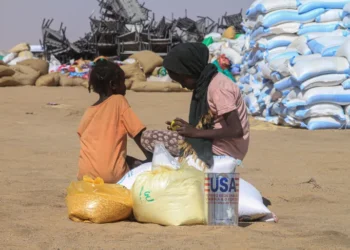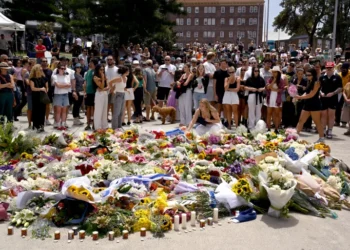New data released by the United Nations Development Programme (UNDP), the World Health Organization (WHO) and the University of Oxford show that COVID-19 vaccine inequity will have a lasting and profound impact on socio-economic recovery in low- and lower-middle income countries without urgent action to boost supply and assure equitable access for every country.
“An acceleration in scaling up manufacturing and sharing enough vaccine doses with low-income countries could have added $38 billion to their GDP forecast for 2021 if they had similar vaccination rates as high income countries”.
The three institutions noted in a joint report that richer countries have paid trillions in stimulus to prop up flagging economies. As a result, it is now time to ensure vaccine doses are shared quickly and also remove all barriers to increasing vaccine manufacturing. They also called for the need to scale up financing support so vaccines are distributed equitably to pave the way for a truly global economic recovery.
Effects on fragile health systems
Also, the statement warns that a high price per COVID-19 vaccine dose relative to other vaccines and delivery costs could put a huge strain on fragile health systems and undermine routine immunization and essential health services. They also believe this could cause alarming spikes in measles, pneumonia and diarrhea.
Moreover, the statement highlights another clear risk in terms of foregone opportunities for the expansion of other immunization services, for example the safe and effective rollout of HPV vaccines. The institutions stressed that lower income countries need timely access to sustainably priced vaccines and timely financial support.
These insights come from the Global Dashboard for COVID-19 Vaccine Equity which combines the latest information on COVID-19 vaccination with the most recent socio-economic data to illustrate why accelerating vaccine equity is not only critical to saving lives but also to driving a faster and fairer recovery from the pandemic with benefits for all.
“In some low- and middle-income countries, less than 1 per cent of the population is vaccinated – this is contributing to a two-track recovery from the COVID-19 pandemic. It’s time for swift, collective action – this new COVID-19 Vaccine Equity Dashboard will provide Governments, policymakers and international organizations with unique insights to accelerate the global delivery of vaccines and mitigate the devastating socio-economic impacts of the pandemic” .
UNDP Administrator, Achim Steiner
Imposition of new restrictions
According to the new Dashboard, richer countries are projected to vaccinate quicker and recover economically quicker from COVID-19. However, poorer countries haven’t even been able to vaccinate their health workers and most at-risk population and may not achieve pre-COVID-19 levels of growth until 2024.
Meanwhile, Delta and other variants are driving some countries to reinstate strict public health social measures. This, the statement notes, is further worsening the social, economic and health impact, especially for the most vulnerable and marginalised people. Vaccine inequity threatens all countries and risks reversing hard won progress on the Sustainable Development Goals.

“Vaccine inequity is the world’s biggest obstacle to ending this pandemic and recovering from COVID-19. Economically, epidemiologically and morally, it is in all countries’ best interest to use the latest available data to make lifesaving vaccines available to all” .
Dr Tedros Adhanom Ghebreyesus, Director-General of the World Health Organization
READ ALSO: Mining activities should match acquired licenses- Mireku Duker to GNASSM






















